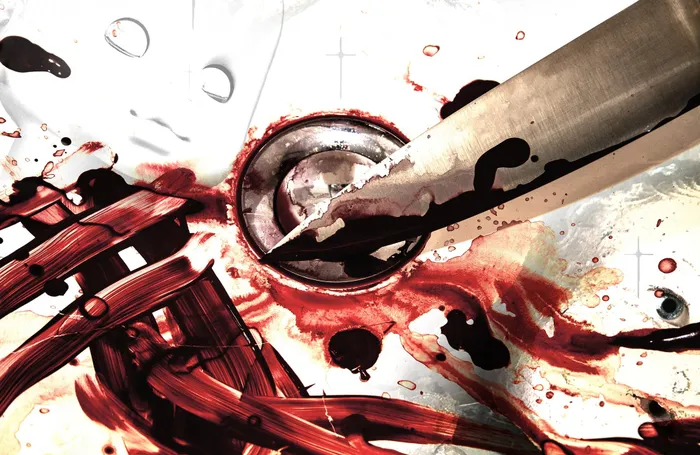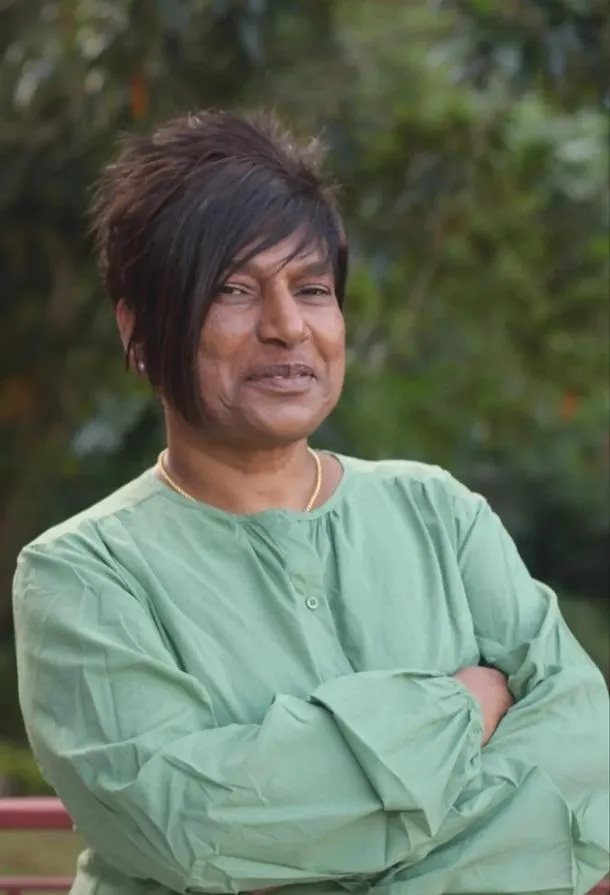The motherland of assassins and violence

bloody knife KwaZulu-Natal has become known as the "Motherland of assassins and violence".
Image: Pixabay
POLITICAL killings and assassinations are prevalent in KwaZulu-Natal and the province has earned the unenviable tag of being the "motherland of hired assassins". Professor Nirmala Gopalal, criminologist and an academic leader in the School of Applied Human Science at the University of KwaZulu-Natal weighs in.

Professor Nirmala Gopal
Image: Supplied
Q. What historical factors have entrenched the culture of political assassinations?
A. Political assassinations in KZN carry a chilling and complex history, reflecting a deeply entrenched pattern of violence that has persisted for over four decades. This tumultuous region has been marred by the targeting of anti-apartheid activists, local civilians, political party members, and public office holders.
The scope of this violence extends beyond political circles; it also includes the tragic assassinations of esteemed local leaders, such as chiefs, and is intricately woven into the broader tapestry of violence within the taxi industry. The ongoing spectre of political assassinations reveals the multifaceted and interconnected challenges facing KZN.
Q. How much of today's violence continues the armed conflicts of the 1980s and 1990s?
A. Political violence during the apartheid era was not just a sporadic occurrence; it was a defining feature of the ongoing struggle between the oppressors and the oppressed. Even as South Africa transitioned into a democratic state, traces of that violence lingered, evolving with new ideological twists.
In the 1980s and 1990s, such violence became so normalised that it’s no wonder its echoes still reverberate today. As Schuld (2013) points out, "the Apartheid system played an important role in perpetuating political violence in areas reserved for black civilians in the 1980s and early 1990s." This dark legacy continues to shape the societal landscape, reminding us of the urgent need for reflection and healing."
Q. Why is KZN more prone to political killings than other provinces?
A. The history of political killings in KZN compared to other provinces can be traced back to the formidable reign of King Shaka, the Zulu monarch whose influence was both profound and perilous. In the early 19th century, Shaka wielded power with an iron fist, using violence to consolidate his dominance and oppose white rule.
His reign could be considered setting in motion a turbulent chapter in the region's history, marked by the Mfecane, or "Crushing," a harrowing period characterised by relentless warfare and mass displacement.
This era was a direct consequence of Shaka’s military campaigns and the enforced subjugation of rival chiefdoms. It might be argued that the oppressors at the time deliberately continued the legacy of political violence, which has persisted in KZN through the centuries, where land and human rights have remained fiercely contested arenas.
With their enticing financial rewards, tenders draw in greedy entrepreneurs and political players, all eager to secure a lucrative deal. As rival parties compete for the same contracts, the atmosphere thickens with obsession over monetary gain. When the stakes are high and a formidable rival threatens to outshine them, desperation kicks in.
In their quest to eliminate the competition—by any means necessary—they may resort to underhanded tactics. While some might label these actions merely as ruthless strategies in the political arena, we often hear whispers of "political assassinations" echoing through the halls of power.
Q. Why are councillors vulnerable?
A. It could be that councillors are perceived as more accessible targets, or that the impact of such an act may attract less attention than a minister's assassination. Additionally, ministers often have more robust security measures, making them potentially more challenging to target. Moreover, if ministers and councillors are vying for similar contracts, it’s conceivable that the more seasoned and well-connected minister could strategically plan for an unfortunate outcome.
Q. How does easy access to firearms sustain the cycle of killings?
A. In numerous regions of South Africa, the accessibility of firearms, especially illegal ones, has reached alarming levels. A considerable amount of public documentation highlights a disturbing reality, namely that these weapons are often used in targeted assassinations. One of the primary reasons for their prevalence in such crimes is their difficulty in being traced back to those who commit the acts.
Q. What patterns do we see with these killings?
A. In many instances, these brutal killings are carried out with firearms, often favoured for their high-calibre power. Drive-by shootings are a familiar and unsettling reality in these scenarios. Assassins may unleash a flurry of bullets, targeting their intended victim but tragically endangering innocent bystanders in the process. The chaos can result in heartbreaking losses and a profound sense of fear in the community.
Q. What impact does this violence have on communities and their faith on democracy?
A. The lack of strict enforcement and convictions related to political killings, combined with a booming black market for firearms, has created a situation where individuals with harmful intentions can easily obtain guns. This availability fuels an increase in violence and insecurity within our communities. Such a trend puts lives at risk and jeopardises efforts to uphold law and order. It undermines the foundational promise of our constitutional democracy, which guarantees all citizens a safe and secure life.
Q. What reforms can break this cycle of killings in the province?
A. It is imperative that we uphold integrity and ensure the clear separation of politics from justice within our criminal justice system. Policymakers must engage in deep self-reflection regarding the impact of their often self-serving motives on an already delicate framework that serves to protect and uphold the rule of law. Additionally, the process of appointing criminal justice personnel should be conducted with utmost transparency, ensuring that public trust is not only earned but also maintained.
This calls for an objective and merit-based approach to hiring personnel, which is essential for fostering a reliable and effective criminal justice system. To achieve this, we must prioritise the recruitment of individuals who exemplify ethical standards, possess the necessary professional qualifications, and demonstrate a commitment to justice.
A well-functioning criminal justice system rests on the integrity and expertise of its personnel, and these individuals should form the backbone of our efforts to create a just and equitable society. Implementing these changes will help fortify public confidence and ensure that the system genuinely serves the greater good.
Related Topics: